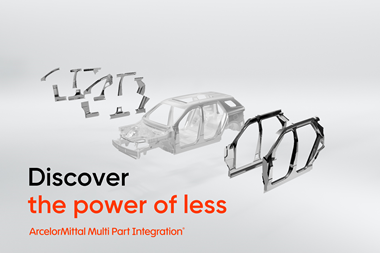 If the number of exhibitors and visitors involved in the production of vehicles at this month’s Advanced Engineering 2015 (AE2015) show in Birmingham was anything to go by, the UK’s automotive industry is in rude health.
If the number of exhibitors and visitors involved in the production of vehicles at this month’s Advanced Engineering 2015 (AE2015) show in Birmingham was anything to go by, the UK’s automotive industry is in rude health.
This impression is supported by the statistics. According to the Society for Motor Manufacturers and Traders (SMMT), over 1.5m vehicles were manufactured in the UK in 2014 – making it the fourth-largest vehicle producer in the EU, and the 14th-largest worldwide. Indeed, SMMT chief executive Mike Hawes claims that production will grow to record levels over the next few years. Furthermore, the industry in the UK is incredibly diverse; in addition to several big OEMs, the UK plays host to over 100 niche and performance brands.
However, these figures mask a significant problem: the automotive supply chain in the UK is relatively weak. On average, only one-third of the parts which go into vehicles manufactured in the region are produced there. The SMMT estimates that there are £4 billion ($6.1 billion) worth of unfulfilled supply opportunities for domestic tier ones.
AE2015 saw the official launch of an initiative that seeks to address this problem for the production of lightweight composite components. Led by textile manufacturer Sigmatex and backed by Bentley Motors, Nissan Motor Manufacturing (UK) and Emerald Automotive, the Lightweighting Excellence (LX) programme has been set up to enhance the capability of the UK automotive industry to produce these parts affordably at medium-to-high volumes. The LX consortium will do this by consolidating all elements of the supply chain – material supply, design and manufacturing – to produce demonstrator components which showcase the UK’s capability.
Each of the three OEMs working with the LX consortium has laid out requirements for a composite part with commercial potential. Bentley has set the task of replacing a structural door-inner sub-assembly – currently made of numerous metallic parts – with a simplified and lightweight carbon fibre-reinforced plastic (CFRP) version.
Meanwhile, Emerald Automotive is developing a lightweight commercial vehicle for which it needs thermoplastic exterior body panels with a class-A surface finish, and so the LX consortium plans to create a UK production facility using automation to ensure an uninterrupted supply of these parts.
Perhaps the biggest challenge has been laid down by Nissan, for which the consortium will develop a CFRP structural floor component. The LX partners will have to produce a floor which is significantly lighter than the existing metallic part, at a comparable price, while meeting the requirements of consistent high quality, structural performance and just-in-time delivery to the production line.
Funded to the tune of £7.15m by the Advanced Manufacturing Supply Chain Initiative and industry, it is hoped that the LX programme will support the creation of 238 new jobs and safeguard 144 existing jobs in the UK between 2015 and 2021.
The UK undoubtedly has the knowledge base to build an effective composites supply chain; now the necessary investment appears to be forthcoming. It will be interesting to see if the region can keep pace with the global composites competition.


































